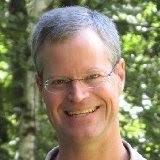This entry and podcast is pinned to the top of our show notes so that listeners have access to our very first podcast, providing them with an overview of Radical Centrist philosophy. It was orginally produced in January of 2019.
Show links and notes
Free Joseph "He is Here"
FreeJoseph.net
Listen
https://feeds.podetize.com/ep/8ak5BqUr2/media
So here we are.
There’s an old Chinese curse: “May you live in interesting times”. Of course most of us would not characterize these times as “interesting”. Horrifying, discouraging, frightening, maybe but interesting - no probably not. A hundred years from now, if America survives, and the planet survives, students of history may characterize these times as merely interesting.
For most Americans, watching the President and his cabinet and the executive team that he is overseeing is like watching a car crash in slow motion. We know that it’s coming. We just don’t know when the point of impact will be. More important, we don’t know whether it will be a fiery pileup or one car plowing into the Tree of Liberty and Decency; a tree that has been painfully and lovingly nurtured; nourished with the blood, sweat and tears of patriots, as it grew and expanded for more than 200 years.
The recent elections may have swung to the left but there was much more happening here than that. As Steve Schmidt, a former aid to John McCain has characterized the wave of voters as a “Coalition of the Decent” from all political parties, one of the most astute observations in recent memory.
This “coalition of the decent” is not the army of any political party, though polling shows them leaning heavily toward the Democrats at the moment. They want a return to a sense of normalcy and security; but don’t mistake this for the status quo ante. Big changes are coming and the question is whether those changes will be created from the center out or from the excesses of the pendulum’s swing.
There is a common misunderstanding about the political spectrum. Many envision it as a line extending from left to right with the two extremes far apart. However, most political scientists say that it is more accurately described as a circle where the extremes come together at the final point of the circle. In such a diagram, the extremes represent a more authoritarian view of the world from either the traditional “left” or “right”. In other words, everyone at the intersection of the left and the right wants to infringe on our liberties - just for different reasons. At the margins we face a choice between the morality police and the nanny state.
The good news is that the vast majority of us are not located on that small junction of the spectrum. They lead nuanced lives focused on family, work and community - in both its most narrow and its broadest sense. . . local community, the American community and the community of the planet. Furthermore, as frustrated as we may be with the actions of the President, positive change continues at the state, local and regional levels.
The bad news is that a growing number of our elected officials of both parties are congregated around that unnuanced point.
For the sake of discussion, let’s leave our current President out of this. He is, we hope, an aberration . . . A symptom of the frustration and marginalization of a significant number of our citizens amid the tumultuous changes taking place in our world. It is likely he will be gone after the 2020 Presidential election - perhaps even before it. He will certainly be irrelevant to the longer term national dialogue except as an example of what we don’t want. The misanthrope that proves the rule. But the challenges that brought him to the Presidency will remain unless we change the game.
If I’m right about this, and I believe I am, in 2020 the American people will be engaged in one of the most consequential elections in our history.
If the Democrats have lurched just as far to the other end of the spectrum, they will lose any purchase they have gained during the Trump years. If the Republicans have not regained their center it may not matter in the short-run but in the long-run it will all matter a great deal. We need a strong two party system. . . especially for what lies ahead.
The world is shifting beneath our feet. If the results of the 2016 and 2018 election have not been a forewarning, then take a look around.
The marginal costs of products move ever lower in response to enhanced productivity but who will buy the products when technology has replaced the human hands that once made them?
To whom will those products be delivered when the trucks delivering them are driverless or they are flown through the air by drones?
Where will we employ the taxi drivers, the line workers, the coal miners?
Don’t panic. There are answers to these questions . . . but they do not lie in the worn out dogmas of the past.
They will not be found in the “invisible hand” of the markets.
Nor are they the domain of the nanny state where everything is provided to everyone and the incentive for improving one’s lot is lost. These are challenges that call for leadership that is both bold and inclusive. Leadership at every level from our communities right on up to the Oval Office. Leaders who call all of us to the task of continuing the Great American Journey, not by shrinking from the challenges but by overcoming them.
It will come as no surprise from someone who proudly declares himself to be a radical centrist, that I am seeking common ground where it is possible and respect and civility where it is not. The problems we face are too great for us to devolve into a nation of whiners, mefers, and thumbsuckers.
Some will say that we need more government. Some will say we need less government. These dogmas are as outmoded as the great struggle that brought them into focus one hundred years ago.
The days of the simple Command Economy vs. Market Economy are drawing to a close.
The left vs. right debate no longer serves us well, if it ever did.
We are a nation in search of a new paradigm. A paradigm that remains true to the central ideas and ideals of the American vision of Life, Liberty and the Pursuit of Happiness. A nation with a place for everyone: Where the working class is not marginalized; where the wealthy are not villainized; where the poor have a real pathway out of poverty, where the middle class is expanding, not shrinking; where it matters not what your skin color is or who you choose to love or what you choose to call yourself; where the opportunity for a meaningful life is recast to reflect a new set of realities and participation in the ongoing Great American Journey is an imperative. The leadership we require will challenge the people to help define this new paradigm, crafted by evolution not revolution and built from the center out, not from the margins. That leadership will come from all of us.
So what is a Radical Centrist; and is Radical Centrism the basis of such a new paradigm?
So What is a Radical Centrist?
The term Radical Centrist arose in the waning days of the 20th Century. In fact, I recall using it myself when I was running for Governor of New Hampshire in 1994. I’m not sure where I had heard the term, but I knew that it applied so I adopted it. For me it meant that I was more interested in solutions than partisan bickering and was drawn to those solutions that involved rethinking approaches to public policy in big ways. I was not interested in just seeking compromise around the edges, I wanted to reform institutions fundamentally to enhance the democratic system and to empower individuals, communities and states. That’s where the use of the word “Radical” stems from. It’s not that I was, or wanted to be, a bomb thrower. What I wanted to do was to approach public policy in a more holistic manner, first asking if the current approaches and institutions were achieving what they were intended to achieve and then asking how we might work across political ideologies to rethink them in unique ways that were more empowering, more entrepreneurial, more in keeping with the American idea.
The idea of Radical Centrism has been fleshed out a bit more in the early years of the 21st Century, though it is still the domain of a few hardy pioneers. Because it is still in its infancy it is also populated by some folks who seem to have a very different view of what it means to be a Radical Centrist. The best way to sort them out is to look at or listen to what they have to say and to determine whether they have anything constructive to say or they are just using their platform for their snarky interpretations of current events.
When his future wife Jackie ask a young John F. Kennedy how he would describe himself politically he answered “an Idealist without illusion” This is evolving to be a central tenet of Radical Centrism, idealism without illusion that manifests itself in real solutions to real problems. Those solutions involve fundamental reform of institutions and efforts to bend the curve in ways that enhance those institutions that seem to be functioning reasonably well.
Radical Centrists seek ways to build solutions from the Center out, actively looking for ways to find common ground - through a marriage of idealism, realism and practicality. and between those who consider themselves conservatives and those who consider themselves progressive. Market solutions, vigorously supervised by democratic institutions, especially those that have a dynamic component allowing for institutions to continuously reinvent themselves to better serve their mission and the public are the preferred approach. Furthermore, Radical Centrists seek approaches that respect and empower individuals and eschew the temptation to make assumptions that villanise the wealthy, criminalize the poor or demonize the “other” among us, including those in the “other party”.
Radical Centrists see the middle class, in both the US and in other nations, as the glue that provides stability to democratic institutions. For that reason they tend toward globalism as a force for positive change but are equally aware that globalization must be tempered with political institutions that help define and enforce norms - as Steven Levitsky and Daniel Ziblatt described in their groundbreaking book “How Democracies Die” - Norms that are the soft guardrails of democracy*.
Only in doing this can we ensure the survival of both democracy and capitalism, by continuously reforming and reinventing them both -
As Bhu Srinivasan (Boo Srinivassen) said in his celebrated book Americana - recognizing Capitalism - not an ideology - but an operating system . . . in need of regular updating and improvement.
Only in this way can we assure that Capitalism 2.0 thrives, and once again begins raising the living standards of the United states after nearly 50 years of declining wealth and income among the lower 90% of Americans. Capitalism can be the tide that lifts all boats but to do that it must serve a higher purpose than the mere accumulation of wealth.
Radical Centrists draw their inspiration from a broad ranging group of thought leaders, beginning with the United States most famous pragmatists Benjamin Franklin and George Washington our only Independent President and a man who had little use for parties and factions. Franklin spent time with my father’s people, the Iroquois, learning about their democratic confederacy and, drawing on his inspirational visit, he became a driving force behind many of the compromises that enabled our founding fathers to find common ground during the Constitutional Convention in Philadelphia. Washington, in what is arguably the most often quoted Farewell address in American history, warned of the dangers of factionalism and ideology. Others like Teddy Roosevelt; Jeremy Rifkin following in the footsteps of Alvin and Heidi Toffler, Margaret Chase Smith the fiercely independent Republican from Maine; and Earl Warren who deftly led the US Supreme Court and helped to engineer decisions like Brown v Board of Education, Baker Vs. Carr establishing the precedent of One-Man-One-Vote; and the Miranda decision protecting the rights of the accused, among many others.
Jon Stewart, though he might not embrace the label is perhaps the best example of a Radical Centrist today and the fact that so many people, especially young people, look to him as an honest broker of truth whose razor sharp sense of humor helps both to bridge the gap between ideologies and at the same time to brook no fools, is an icon of Radical Centrism. Thomas Friedman of the New York Times is likewise an individual who seeks solutions where they are to be found without concern for the label attached.
Jon Avlon, Editor of the Daily Beast is among the journalists who can be identified as a radical centrist. His book on Washington’s Farewell Address is something of a treatise on Radical Centrism built around Washington’s Farewell address.
Radical Centrism is not a manifestation of the mushy middle, where we simply seek to split the difference. It is not even the more often stated goal of seeking common ground, though that can be useful, but too often even that just involves making concessions and accommodations that leave all sides feeling less than satisfied. Instead it involves creating new ground. . . building anew upon the rubble of what has failed us.
In the weeks and months to come I hope to bring you podcasts, interviews and writings that further expand this notion and provide concrete examples of radical centrist ideas being proposed by myself and others. I hope you will join us.
Thanks for joining me for the Radical Centrist Podcast. One way to do so is to become a patron of The Radical Centrist on Patreon. For as little as a $1.00 a month you can become a member and help me avoid the annoying need to solicit advertisers and waste part of the podcast with their drivel.
www.Patreon.com/TheRadicalCentrist
Notes & Links
Bhu Srinivasan Ted Talk
Capitalism isn't an ideology -- it's an operating system
https://www.youtube.com/watch?v=Y0UB6g8Rsyw
Free Joseph Music
www.FreeJoseph.net








































